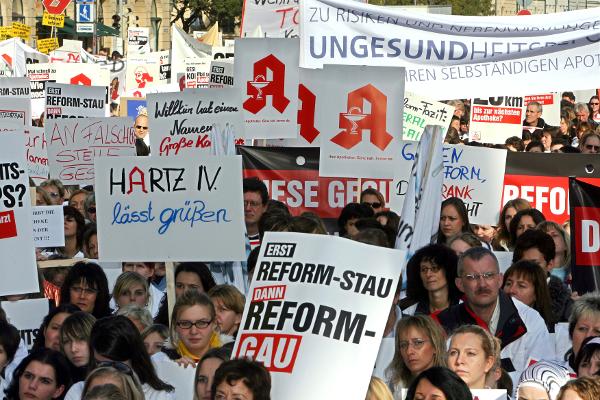Source

Source: picture-alliance/ dpa (c) dpa
The high costs of the healthcare system remained a perennial issue in German politics and society. The discussion involved not only the political parties, but also interest groups representing the pharmaceutical industry, pharmacists, doctors, and health insurance companies. In the 2005 coalition agreement, the Grand Coalition set itself the goal of “ensuring sustainable and fair financing” of the healthcare system. Achieving this goal meant reaching a compromise between the single-payer system [Bürgerversicherung] proposed by the SPD and the flat-rate premium scheme [Gesundheitsprämie] of the CDU/CSU. After drawn-out negotiations, the "Statutory Health Insurance Competition Strengthening Act," which introduced compulsory health insurance coverage for all, took effect on April 1, 2007. One key aspect of the reform was the establishment of a healthcare fund financed by premiums and tax revenue. This fund, however, was not set up until January 1, 2009, at which point it was established in conjunction with standardized premiums throughout the country.
Taken on November 8, 2006, this photograph shows pharmacists protesting the ramifications of the planned healthcare reform. About 10,000 pharmacists participated in the demonstration on Odeonsplatz in Munich.

Source: picture-alliance/ dpa (c) dpa